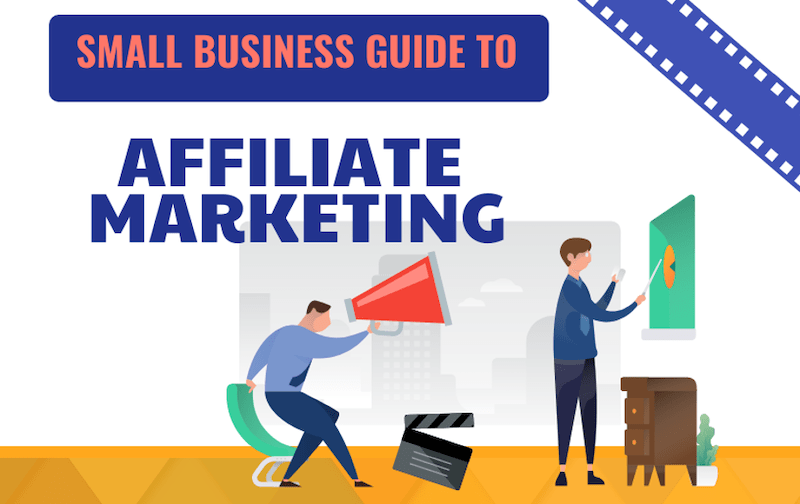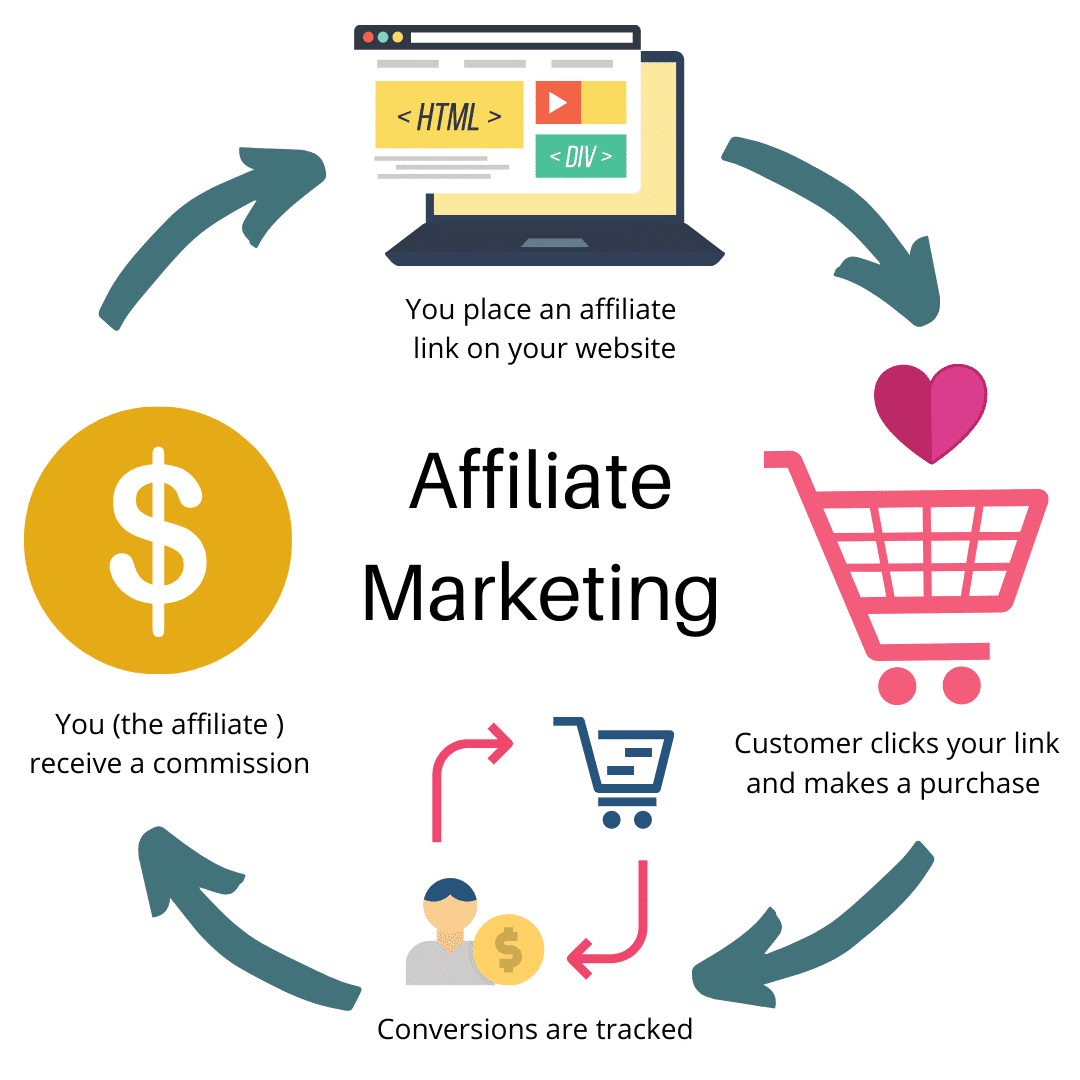Quick guide: how to get involved with affiliate marketing?
Affiliate marketing is a great way to make money online. With the right strategies, it can be a lucrative source of income. This post will discuss steps and tips to get started with affiliate marketing.
Step 1: Choosing the Right Affiliate Marketing Strategy
Step 2: Choose Your Niche and Products Wisely
Step 3: Join Reputable Affiliate Programs
Step 4: Build an Engaging Website or Blog
Step 5: Create High-Quality Content
Step 6: Drive Targeted Traffic
Step 7: Nurture Relationships with Your Audience
Step 8: Monitor and Optimize Your Performance
Step 9: Stay Updated with Industry Trends
Step 10: Build a Brand and Diversify
Are you ready? Let’s take a look at the detailed steps together.
Affiliate marketing has emerged as a powerful online business model that allows individuals to earn passive income by promoting products or services and earning a commission for each successful referral. If you’re intrigued by the idea of generating revenue through affiliate marketing, you’ve come to the right place. In this quick guide, we are fortunate to have Abner, a veteran affiliate marketing expert, to share with us the steps and tips to get started in affiliate marketing and help you succeed in the affiliate marketing world.
What Is Affiliate Marketing?
Affiliate marketing is a popular online business model where individuals or companies earn commissions by promoting and selling products or services on behalf of other businesses. It is a performance-based marketing strategy that rewards affiliates for driving desired actions, such as clicks, leads, or sales.
When a customer makes a purchase through the affiliate’s unique tracking link, the affiliate earns a commission. It’s a win-win situation for all parties involved. The merchant gains exposure and sales, the customer discovers valuable products, and the affiliate earns a commission for their marketing efforts.

Benefits Of Affiliate Marketing
- Passive Income: Once you set up your affiliate marketing system, it has the potential to generate passive income. As your audience grows and your marketing efforts pay off, you can earn money while you sleep.
- Flexibility and Independence: Affiliate marketing offers the freedom to work on your own terms. You can choose the products you want to promote, create your own marketing strategies, and work from anywhere in the world.
- Low Start-up Costs: Unlike traditional businesses, affiliate marketing requires minimal investment. You don’t need to create your own products or deal with inventory management. Instead, you can focus on promoting and earning commissions.
- Wide Range of Products and Niches: With countless affiliate programs available, you can choose from a vast array of niches and find products that align with your interests and expertise.
- Scalability: Affiliate marketing has no limits on earning potential. As you gain experience and optimize your strategies, you can scale your business by reaching a larger audience and earning higher commissions.

How To Get Started With Affiliate Marketing
In the vast landscape of affiliate marketing, it’s essential to find a strategy that suits your goals and resources. Before diving into the intricacies of affiliate marketing, it’s crucial to understand the various approaches available. The most common strategies include:
- Pay-per-Click (PPC) Advertising: PPC advertising involves placing ads on search engines or other websites and paying a fee whenever a user clicks on your ad. This strategy can provide immediate exposure and traffic to your affiliate links, but it requires careful keyword research and budget management.
- Content Marketing and Blogging: Content marketing and blogging are popular approaches that involve creating valuable and engaging content related to your niche. By incorporating affiliate links naturally within your content, you can attract organic traffic and build a loyal audience over time.
- Influencer Marketing: Influencer marketing leverages the reach and influence of social media personalities or industry experts. Collaborating with influencers in your niche can significantly expand your audience and boost affiliate conversions.
- Email Marketing: Email marketing allows you to build a subscriber list and nurture relationships with your audience. By sending personalized emails containing valuable content and affiliate promotions, you can drive conversions and establish trust.
- Product Reviews and Recommendations: Writing detailed product reviews and recommendations can be an effective way to attract potential customers. By providing honest insights and valuable information, you can position yourself as a reliable source and drive affiliate sales.
Selecting a niche that aligns with your interests and expertise is crucial for long-term success in affiliate marketing. Conduct thorough research to identify profitable niches and choose products or services that resonate with your target audience.
Partnering with reputable affiliate programs is essential to ensure the reliability and quality of the products or services you promote. Research different programs in your niche, evaluate their commission structures, track record, and available promotional resources.
Establishing a strong online presence is paramount in affiliate marketing. Develop a professional website or blog that reflects your brand and provides a seamless user experience. Optimize your site for search engines by incorporating relevant keywords, engaging visuals, and intuitive navigation.
Content lies at the core of any successful affiliate marketing strategy. Craft compelling, informative, and engaging content that educates your audience, solves their problems, and encourages them to take action. Incorporate your affiliate links naturally within your content to maximize conversions.
Generating targeted traffic is key to converting visitors into customers. Implement various strategies such as search engine optimization (SEO), social media marketing, guest blogging, and online advertising to increase your website’s visibility and attract quality leads.
Building trust and establishing strong relationships with your audience is vital in affiliate marketing. Engage with your audience through social media, respond to comments and messages, and provide personalized support. By nurturing these relationships, you can enhance your credibility and increase affiliate conversions.
Regularly monitoring and analyzing your affiliate marketing performance is crucial for continuous improvement. Utilize tracking tools and analytics platforms to gain insights into your website traffic, click-through rates, conversion rates, and revenue generated. Use this data to identify areas for optimization and refine your strategies accordingly.
The affiliate marketing landscape is dynamic and ever-evolving. Stay up-to-date with the latest industry trends, technological advancements, and changes in consumer behavior. Join affiliate marketing communities, attend conferences, and engage in continuous learning to stay ahead of the curve and maintain a competitive edge.
As your affiliate marketing journey progresses, focus on building a strong brand that resonates with your audience. Consistently deliver high-quality content, maintain transparency, and provide value to your followers. Additionally, consider diversifying your income streams by exploring additional monetization methods, such as creating your own products or offering consulting services.

Tips For Getting Started With Affiliate Marketing
- Focus on Quality Content: Content is king in the world of affiliate marketing. Provide valuable information, honest reviews, and helpful insights to your audience. Quality content builds trust, credibility, and encourages conversions.
- Build an Engaged Audience: Engage with your audience through social media, email newsletters, and interactive content. Encourage feedback, respond promptly to inquiries, and create a sense of community around your niche. The more engaged your audience is, the higher the chances of conversions.
- Diversify Your Income Streams: While affiliate marketing can be lucrative, it’s always wise to diversify your income sources. Explore other monetization methods such as sponsored content, digital products, or even creating your own products down the line.
- Stay Updated with Industry Trends: The world of affiliate marketing is constantly evolving. Stay informed about industry trends, new products, and changes in consumer behavior. This knowledge will help you adapt your strategies and stay ahead of the competition.
- Track and Analyze Performance: Utilize tracking tools and analytics to monitor the performance of your affiliate marketing campaigns. Identify what strategies are generating the most conversions, which products are resonating with your audience, and optimize accordingly.
- Build Relationships with Merchants: Forge strong relationships with the merchants you promote. Communicate regularly, provide feedback, and collaborate on exclusive offers or promotions. A positive relationship can lead to better commission rates and exclusive opportunities.
- Continuously Learn and Improve: Affiliate marketing is a continuous learning process. Stay curious, invest in your education, and learn from successful affiliates in your niche. Attend conferences, webinars, and join affiliate marketing communities to expand your knowledge and network.

Conclusion
In conclusion, affiliate marketing is an exciting opportunity to generate income by promoting products or services you believe in. By choosing the right niche, finding reputable affiliate programs, setting up a professional website, and implementing effective marketing strategies, you can embark on a successful affiliate marketing journey. Remember to focus on quality content, engage with your audience, diversify your income streams, stay updated with industry trends, track your performance, build relationships with merchants, and continuously learn and improve.
FAQs:
Do affiliate marketers get paid?
Yes, affiliate marketers do get paid for their efforts. They earn commissions for every successful referral or sale they generate through their affiliate links. The amount of commission varies depending on the affiliate program and the specific products or services being promoted.
How hard is affiliate marketing for beginners?
Affiliate marketing can be challenging for beginners, especially when starting from scratch. It requires a combination of knowledge, skills, persistence, and a strategic approach. While it may take time and effort to build a successful affiliate marketing business, the learning curve can be manageable with the right resources, guidance, and dedication.
How long does it take to learn affiliate marketing?
The duration required to learn affiliate marketing may vary, ranging from six to 15 months before you start earning significant revenue from your affiliate strategy.



